On September 19, 2018, the Beijing Plastic Solution Forum, jointly organized by Break Free from Plastic Movement China(BFFPC), China Zero Waste Alliance(CZWA), World Wide Fund (WWF), and Beijing Zero Waste, was hosted in Tsinghua University. Above 90 participants from environmental protection organizations, enterprises, experts and individuals who keep eyes on plastic pollution were invited to the forum. The forum served as a stage to unite force from all walks of lives and improve on solving plastic pollution .
Break Free from Plastic Movement China (BFFPC), which was initiated by several environmental organizations and individuals, is a cooperative network with the aim of eliminating plastic pollution. The coordinator of BFFPC Zheng Xue said, the forum was not just discussing about plastic pollution, more importantly, it tried to demonstrate the existing solution ideas and actions, hoping that it could inspire people to join in and solve the plastic pollution.
At the opening, Liu Hua, the Executive Committee of BFFPC, said: "We hope to build an action network in China as well as a better stage to communicate, to learn and to bring changes with more power. To tackle plastic pollution is not just the NGO’s business, moreover, we hope to play a role in improving communication among government, corporates, academic circles and other parties. "
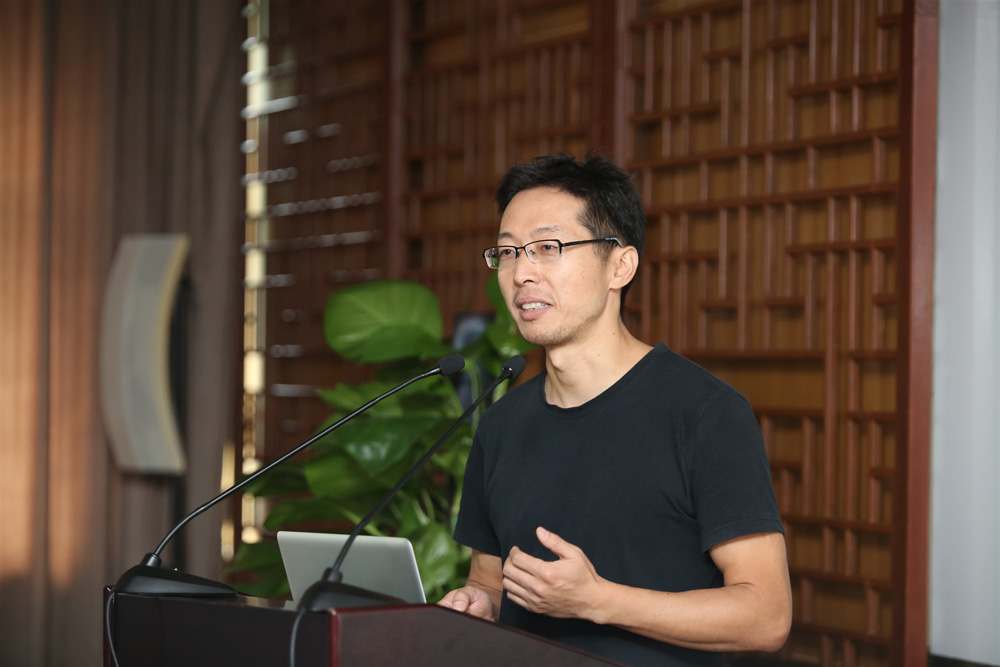
Liu Hua, The Executive Committee of BFFPC
Analyst Li Yue from The Natural Resources Defense Council (NRDC), Oil Control Research Project, introduce the close relationship between the explosive growth of the plastic pollution and the plastic raw materials behind which was the oil industry. She implied: "We predict that in the next twenty or thirty years, the percentage of Chinese oil consumption in traffic field will decrease while the percentage in chemical industry will increase. The main drive of Chinese oil consumption will change from traffic field to the chemical industry. An important factor is the improvement of people’s living standard which lead to higher material demands and push the increase of consumption of plastic and other petrochemical products. However, new technique and materials which are as convenient and profitable as petrochemical products, still have not been found at present. "
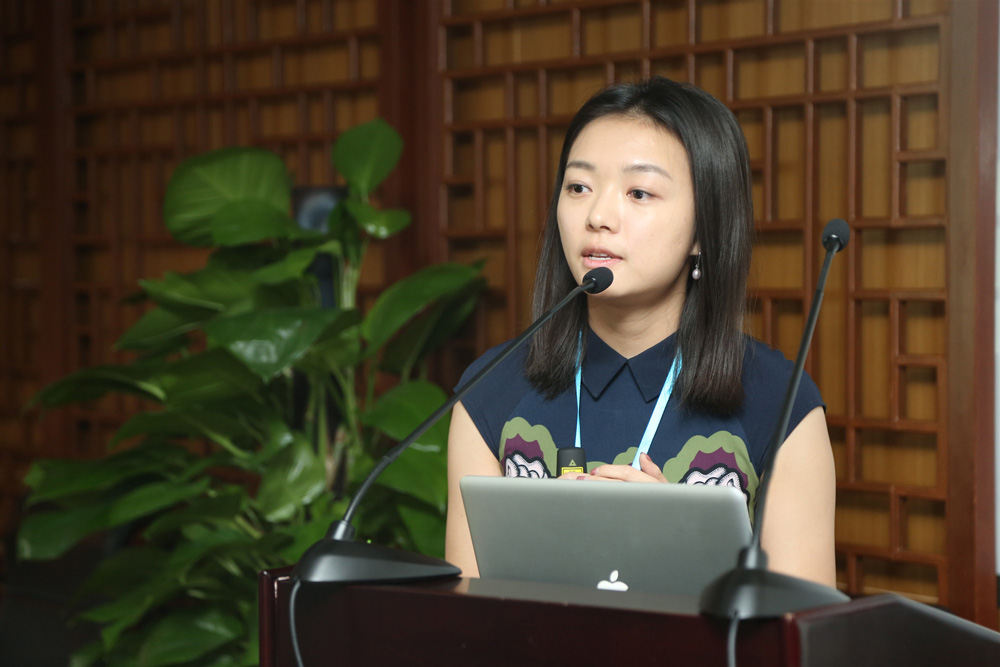
Li Yue, Oil Control Research Project Analyst of NRDC
The consumption of plastic products in developed countries and regions around the world now is much lower than their growth rate of GDP while the consumption of plastic products in China still has the same growth rate as GDP. To a great extent, when the consumption of plastic products in China will stop increasing is related to its economic growth pattern. The economic growth in China still mainly depends on exports and manufacturing. Plastic products are important materials in manufacturing. Under such circumstances, it seems that it is hard to stop and reduce consuming plastic products on the whole.
Xie Xinyuan, a policy researcher from the China Zero Waste Alliance, combed the situation of China's plastic-related policies and found that there are many deficiencies in the current policy now. In terms of source reduction and extension of producer's responsibility, there is an extended producer's responsibility system at the national level, and there are some regulations for some type of plastic products in the industry and local areas, but the coverage is too narrow and there is no systematic source management policy for disposable goods. Some plastic bags with portable function are replaced by biodegradable plastic bags in some districts, lacking the promotion policies of real reduction schemes; the policies of classification and recycling are relatively substantial; the system of living garbage charge according to quantity is being established; and the subsidy of low-value recyclables is also increasing in cities. At the same time, the industry standard of plastic waste processing already exists, but the standard of recycled materials has not been systematized, and the policy is more inclined to new technology than to formulate a system. Tax incentives have been given to end-treatment enterprises, but not enough incentives to support recycling enterprises.
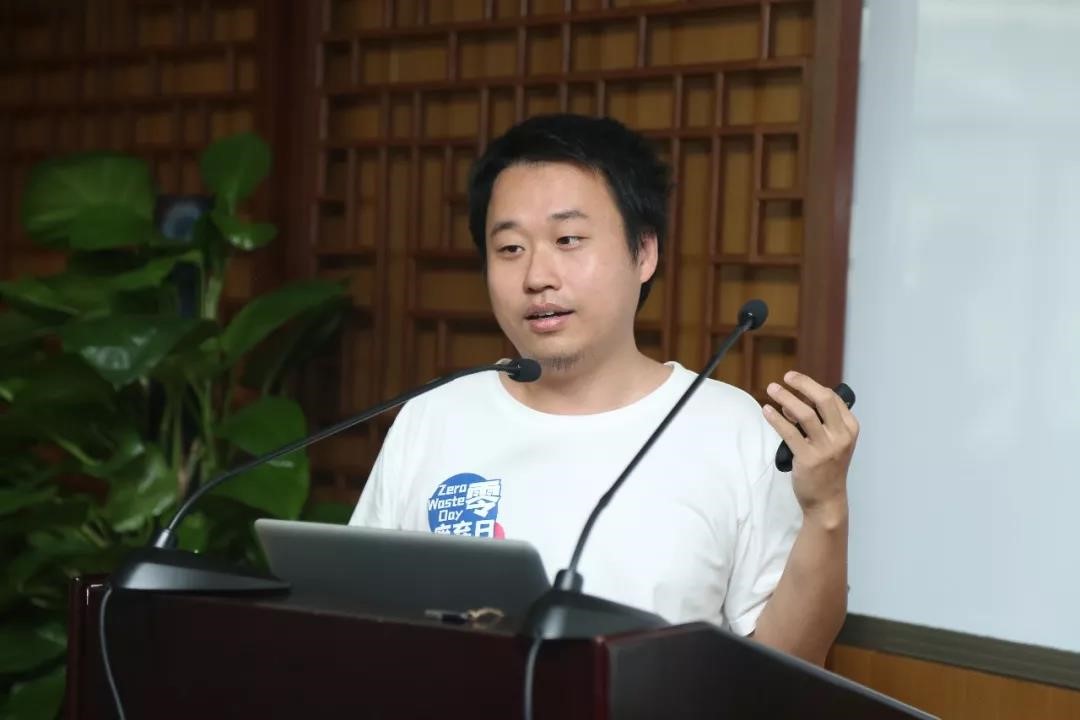
Xie Xinyuan, Policy Specialist at China Zero Waste Alliance
Xie Xinyuan put forward some principles that should be followed in plastic waste management policy. He believed that enterprises should be required to extend their responsibilities, implement a deposit system, and regulate disposable plastics as pollutants to monitor and control the total amount from the source.
In order to solve the plastic waste pollution, many industries and relevant policies put forward "degradable materials" as a solution. At the forum, Dr. Mao Da, chairman of the board of directors from Shenzhen Zero Waste, clarified the concepts of "bioplastics" and "degradable plastics", analyzed the problem of "degradable plastics", reminded us that we need to be cautious about using biodegradable plastics as a solution to replace traditional plastics: "First, we need to clarify the concept that biodegradable plastics, whether photodegradable or oxidized, are not biodegradable, but actually lead to fragmentation of plastics."
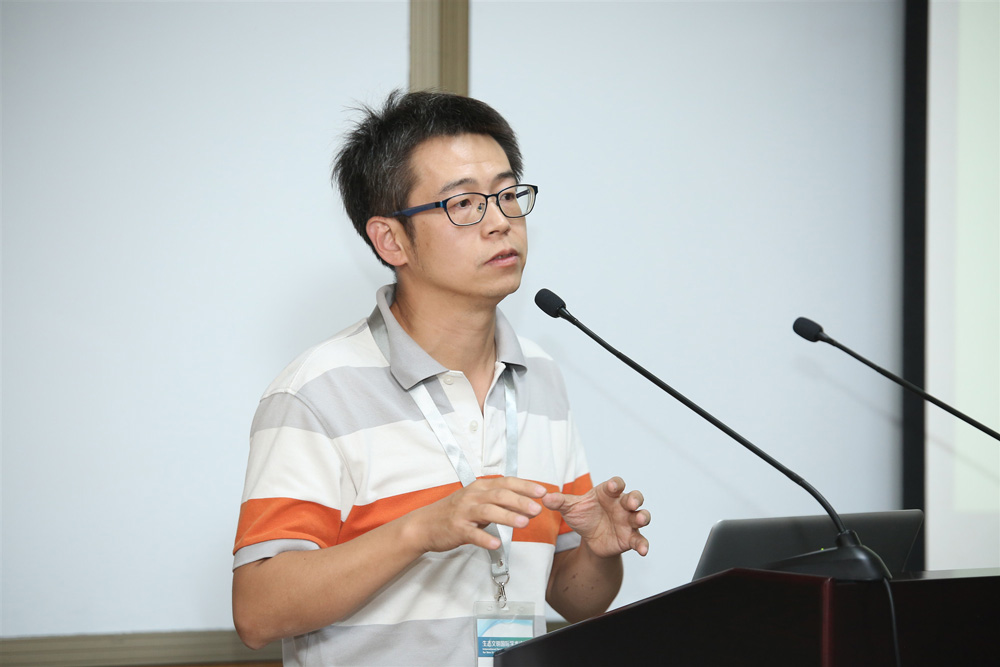
Maoda, Chairman of Shenzhen Zero Waste
He emphasized: "Biodegradable plastics are not equal to natural degradable. Now most biodegradable plastics on the market need to be biodegraded under composting or industrial composting conditions strictly. Therefore, biodegradable plastics cannot be easily degraded by any environmental conditions. "
In addition, if we do not pay attention to the control of total utilization but simply replace the traditional plastics with biodegradable plastics, the crops needed to produce biodegradable materials will also bring the unsustainability. "Assume that 0.18 hectares of arable land is required for per ton of biodegradable plastic. If the 80 million tons of plastic producton per year in China now replaced with biodegradable plastics all over the country, then it would require to use the arable land as large as Henan and Shandong Province to produce the raw materials needed for biodegradable plastics. It shows that this single material substitution is not a sustainable solution. " He added.
In this forum, the producer responsibility extension system is proposed as an important solution to cope with plastic waste pollution. Jiang Nanqing, secretary-general from Plastics Recycling Branch of China Synthetic Resin Supply and Sale Association, claimed: "In the future, the establishment of a system for controlling plastic pollution in China need to consider the following: First, we should cut down the amount of plastic we use by increasing the use-cost. Second, to increase the cost of waste production and the recovery rate, such as establishing a deposit system. Third, to raise the value of recycling to promote the recovery and regeneration. The fourth point is to improve the profits of the recycling industry for encouraging the investment.
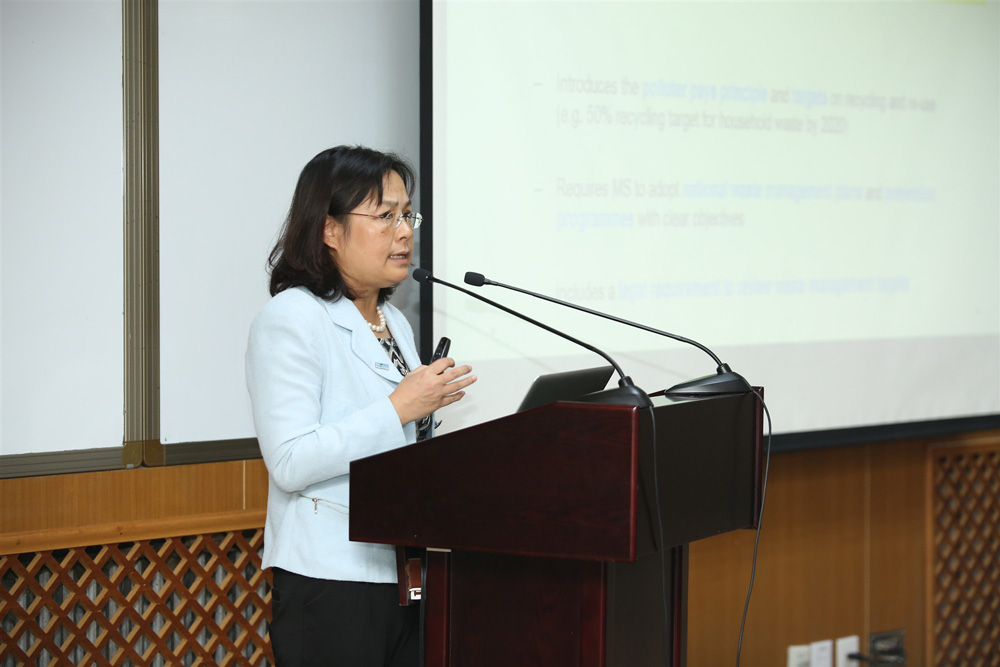
Jiang Nanqing, The secretary-general from Plastics Recycling Branch of China Synthetic Resin Supply and Sale Association
In order to promote the understanding of the basic situation of plastic waste flowing into the natural environment and encourage enterprises to actively solve this problem, international and domestic environmental protection organizations have conducted brand audit actions for beach waste.
Von Hernandez, global coordinator from the Break Free Form Plastic Movement, said: "When it comes to beach waste, people easily think that is caused by public littering. However, except for that, if we can better understand what kinds of garbage and brands are on the beach, we can trace the deeper reasons and find the corresponding solutions. " Also, Von Hernandez has reported that the top brands have repeatedly appeared as Unilever, Nestle, Procter & Gamble and other internationally renowned brands in their brand audit results came out in several countries of Southeast Asia.
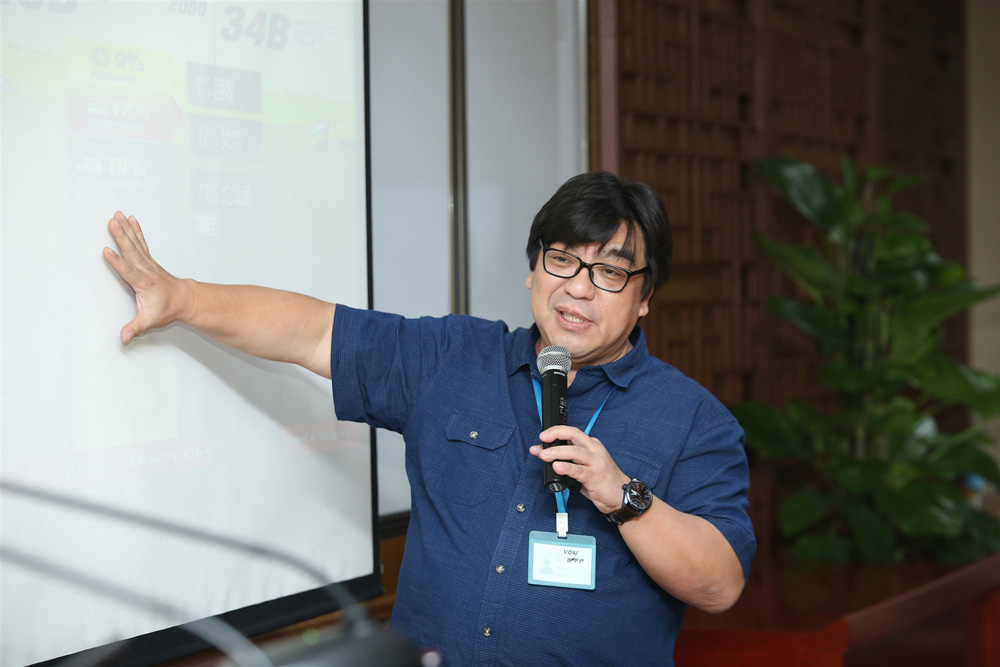
Von Hernandez, Global coordinator from the Break Free Form Plastic Movement
Environmental NGO, Shanghai Rendu Ocean has also actively carried out brand audit of beach waste in recent years. Liu Yonglong, chairman of the board of directors, said: "We hope to use brand audit to urge the participation of corporates to take action for change together. But how can we drive them? To cooperate with or to put pressure to them both deserve to consider. "
Subsequently, the forum was divided into two themes: "Public's Plastic Reduction Movement" and "Industry Plastic Reduction Cases", which were conducted simultaneously by showing the solution of plastic pollution through the practical actions of individuals and businesses from two dimensions.
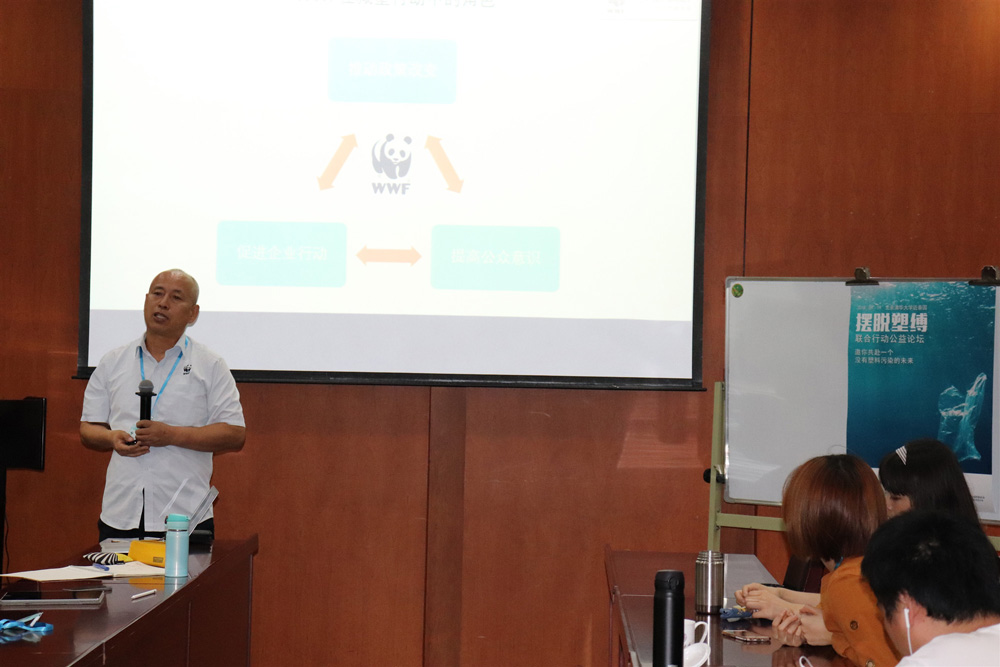
Jin Zhonghao, The director of China Market Project of the World Wide Fund (WWF)
In the "Public's Plastic Reduction Movement" sub-furom, The director of the WWF China market project, Jin Zhonghao, took their action of "reducing the use of plastic straws" as an example and pointed out that they hoped everyone can realize the adverse effects of plastics on the environment and human beings starting from giving up plastic straws that is relatively easy to eliminate. Besides, he said that WWF will play a role in pushing forward policy change, promoting the action of corporates, and raising their awareness of plastic reduction. "
In the "Industry Plastic Reduction Cases" sub-forum, Wang Xi, the founder of VLOOP, and Sun Wei, CEO of Beijing NEO Technology Ltd., shared how to solve the current excessive express packaging problem through business model.
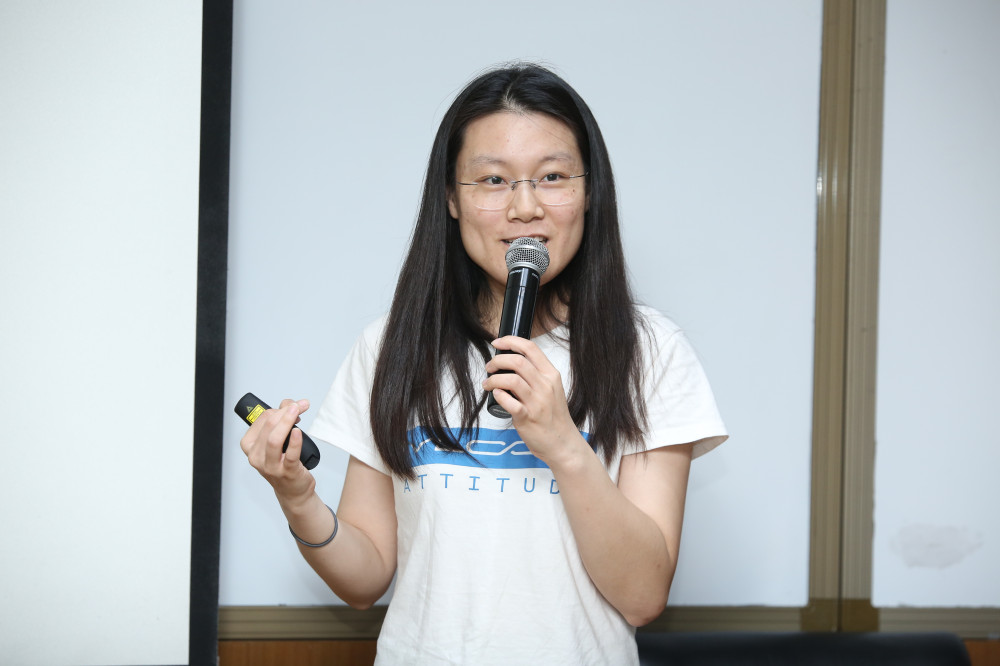
Wang Xi, The founder of VLOOP
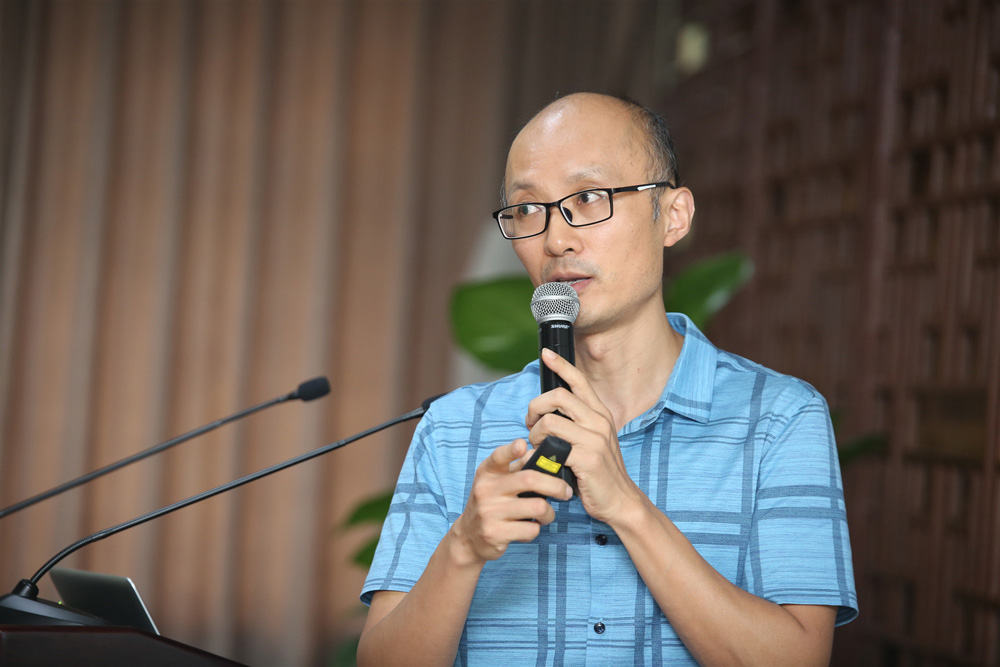
Sun Wei, CEO of Beijing NEO Technology Ltd.
Then, the venue also discussed the solution to take-away garbage. Zhong Fang, deputy director of Art Institution of Tsinghua University, showed the solution designed by Tsinghua University to solve the problem of take-away garbage. Hong Kong We Use Ltd. and SEE Network,also have provided important inspiration for the reduction of take-away garbage by sharing tableware and Shop Naked Movement.
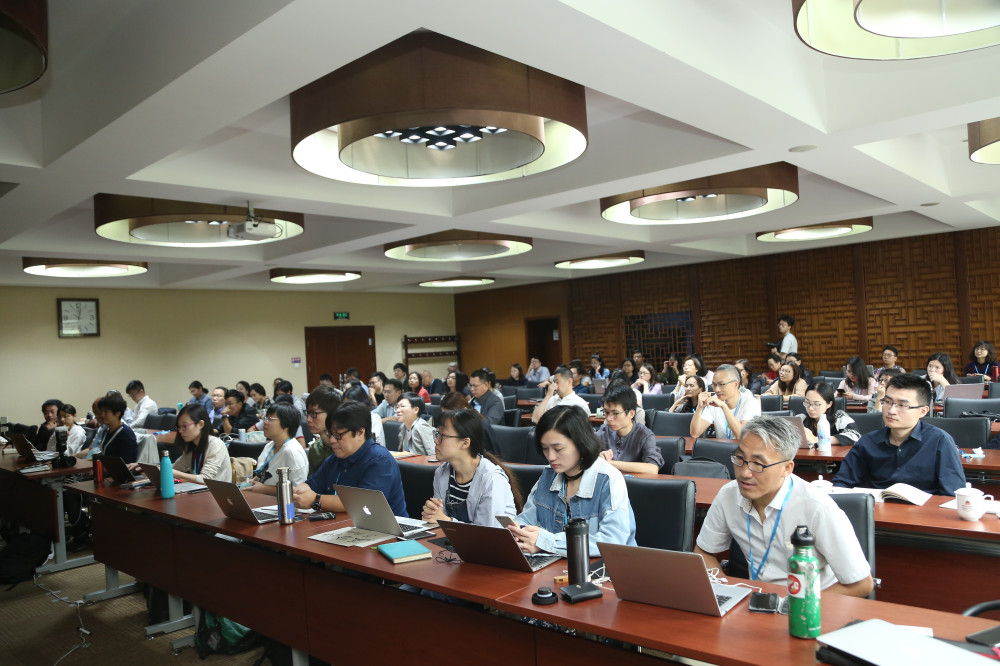
Zheng Xue, the coordinator of BFFPC, said: "We are pleased to see that more and more people in China paying attention to and participating in solving the problem of plastic pollution, including a solid solution for marine debris removal and take-away waste reduction designed by Peking University and Tsinghua team invited by the forum, which also showed the enthusiasm of young people to solve plastic pollution. Plastic pollution, especially the proliferation of disposable plastic products, has emerged in all aspects of our lives. It is necessary to unite the wisdom and strength of all walks of life available to make change. "



